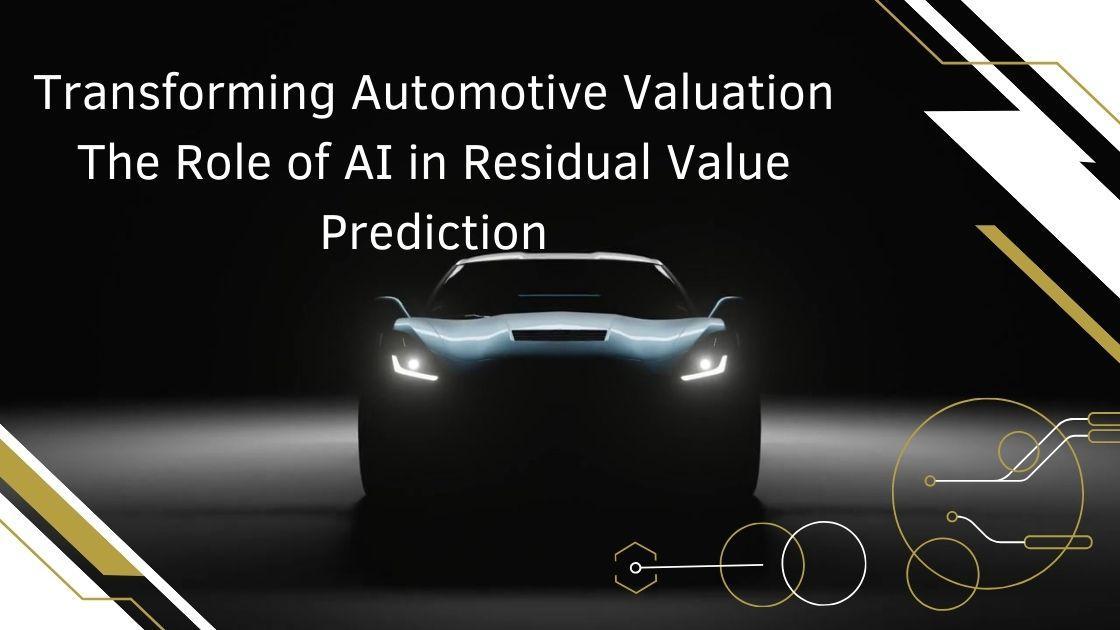In this digital world, innovation in predictive analytics has reshaped the way vehicles are valued, impacting pricing strategies and market dynamics. Ravi Sankar Sambangi explores how artificial intelligence (AI) and machine learning are revolutionizing residual value estimation, enhancing accuracy and profitability in the automotive industry.
The Evolution of Vehicle Residual Value Prediction
Residual value prediction has long been a cornerstone of the automotive industry, affecting financing decisions, lease agreements, and resale markets. Traditional methods relied on historical data, linear regression models, and expert insights, often resulting in significant valuation discrepancies. These outdated models struggled to incorporate rapidly changing variables such as shifting consumer preferences, economic fluctuations, and advancements in vehicle technology. Consequently, conventional approaches frequently miscalculated depreciation rates, leading to financial losses for manufacturers, dealerships, and leasing companies.
The Power of Machine Learning in Valuation
Machine learning has transformed the landscape of residual value forecasting. By leveraging vast real-time data, AI-powered models analyze numerous vehicle attributes, including age, mileage, brand reputation, fuel efficiency, and macroeconomic indicators. Deep learning techniques and ensemble modeling enhance accuracy by identifying complex patterns and relationships that traditional statistical models fail to capture. Studies have shown that AI-based forecasting models have reduced valuation errors by up to 13.5%, significantly improving pricing precision.
Addressing Market Challenges with AI
Estimating residual value is challenging with the rise of EVs, as they depreciate differently from ICE vehicles. AI models now factor in battery health, tech advancements, and consumer sentiment, improving accuracy by over 20%. These models help stakeholders better assess long-term returns amid evolving infrastructure and government incentives, ensuring more reliable EV valuation forecasts.
Enhancing Profitability Through AI Optimization
AI-driven valuation models have demonstrated substantial financial benefits across the automotive ecosystem. By improving pricing accuracy, dealerships have increased their profit margins, reduced inventory holding time, and enhanced their ability to price vehicles competitively. Leasing companies utilizing AI-powered forecasting models have reported a reduction in end-of-lease losses by 12.4%, translating to savings of thousands of dollars per vehicle. AI-driven strategies have also optimized portfolio management, improving return on investment and reducing financial risks.
Overcoming Challenges in AI Implementation
AI has revolutionized residual value prediction but faces challenges in implementation. Data scarcity is a major hurdle, especially for new vehicle models and emerging technologies, as limited historical data hampers model training. The rapid evolution of automotive tech exacerbates this issue. Additionally, industry adoption depends on model interpretability, driving the need for explainable AI (XAI) frameworks that provide transparency and clear justifications for AI-driven valuation decisions.
The Future of Automotive Predictive Analytics
The future of residual value prediction lies in continuous advancements in AI and machine learning. The integration of external data sources, including real-time market trends, economic indicators, and predictive maintenance reports, will enhance forecasting accuracy. Adaptive learning models that automatically update based on changing market conditions will ensure dynamic and precise residual value estimation. As AI-powered analytics become more sophisticated, they will provide automotive businesses with actionable insights, allowing for more thoughtful pricing strategies and risk management solutions.
The Broader Impact of AI on the Automotive Sector
Beyond residual value estimation, AI is revolutionizing various aspects of the automotive industry. Machine learning drives efficiency across the sector from intelligent supply chain management to AI-assisted predictive maintenance. AI-based pricing algorithms optimize inventory turnover, ensuring dealerships maximize profitability while meeting consumer demand. In the used car market, AI-driven insights are streamlining vehicle appraisals, making transactions more transparent and reliable for buyers and sellers alike.
Bridging the Gap Between AI and Human Expertise
Despite AI’s power in predictive modeling, human expertise remains invaluable. While AI excels at processing large datasets and identifying patterns, industry professionals provide the contextual understanding necessary for effective decision-making. The ideal approach involves a hybrid model where AI-generated insights complement human judgment, ensuring a balanced and reliable vehicle valuation framework.
In conclusion, Ravi Sankar Sambangi highlights the transformative potential of AI in vehicle valuation. By embracing cutting-edge predictive analytics, the industry can navigate evolving market conditions with greater confidence, optimizing financial performance and strategic planning in the years to come.



































